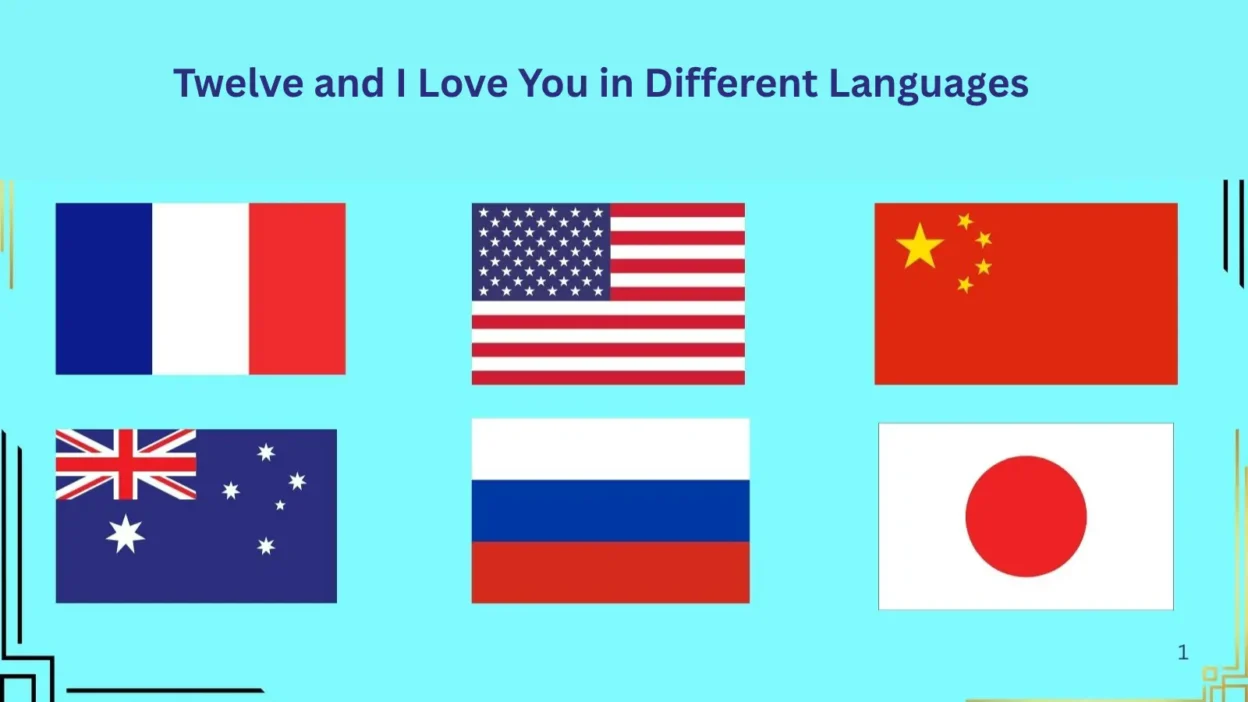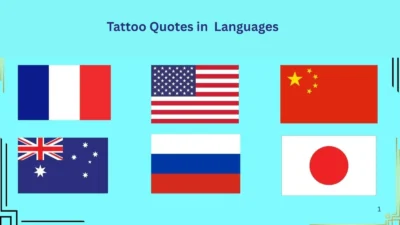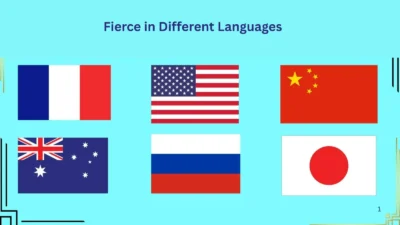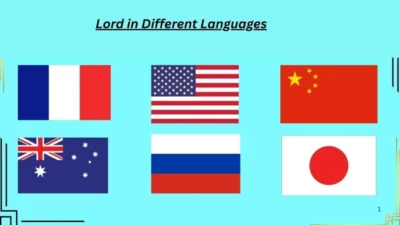Have you ever found yourself wondering how to say “twelve” or “I love you” in different languages? Maybe you’re a traveler, a language enthusiast, or someone trying to impress a loved one with a romantic message in their native tongue.
Whatever the reason, you’re not alone. These two phrases — one numeric, one emotional — are among the most searched terms globally when it comes to cross-cultural communication.
This article is here to solve that curiosity. Not only will you learn how to say “twelve” and “I love you” in multiple languages, but you’ll also understand what they mean, how they’re used, and the cultural importance behind them. Whether you’re studying a new language or writing a love letter, this guide is your perfect starting point.
User Intent Behind Searching These Phrases
Why do people search for “I love you in different languages”?
- Romantic Expression: To impress someone or express love in a more personalized, thoughtful way.
- Gifting: For cards, jewelry, or tattoos that carry emotional value in foreign words.
- Social Media: To make posts more unique or culturally inclusive.
- Language Learning: To build vocabulary with emotionally powerful phrases.
Why do people search for “twelve in different languages”?
- Travel or Business: To understand time (12 o’clock), dates (12th), or quantities.
- Education: For language study, teaching aids, or classroom materials.
- Culture & Religion: The number 12 has symbolic value in many cultures (e.g., 12 zodiac signs, 12 months, 12 apostles).
These searches reveal a desire to connect across languages, emotionally or practically. This article offers exactly what you’re looking for: accurate translations, meaning, and real-life usage examples.
What Does “Twelve” and “I Love You” Really Mean?
Twelve – The Number
“Twelve” is a cardinal number, coming after eleven and before thirteen. It is often associated with:
- Time (12 hours on a clock)
- Calendars (12 months)
- Measurements (a dozen)
- Religion/Mythology (12 apostles, 12 Olympians)
I Love You – A Phrase Full of Emotion
“I love you” is a universal expression of deep affection, but the emotional weight and cultural nuances vary across languages. In some cultures, it’s reserved for deep relationships; in others, it’s used more openly. The phrase can express:
- Romantic love
- Familial love
- Close friendship
Twelve in Different Languages
| Language | Twelve | Pronunciation |
| English | Twelve | /twɛlv/ |
| Spanish | Doce | /ˈdo.se/ |
| French | Douze | /duz/ |
| German | Zwölf | /tsvœlf/ |
| Italian | Dodici | /ˈdɔ.di.tʃi/ |
| Portuguese | Doze | /ˈdo.zi/ |
| Russian | Двенадцать | /dvʲɪˈnat͡sətʲ/ |
| Arabic | اثنا عشر | /ithnā ‘ashar/ |
| Chinese | 十二 | /shí èr/ |
| Japanese | 十二 | /jū ni/ |
| Korean | 열둘 | /yeol-dul/ |
| Hindi | बारह | /bārhah/ |
| Urdu | بارہ | /bārah/ |
| Turkish | On iki | /on iki/ |
| Swahili | Kumi na mbili | /koo-mee nah m-bee-lee/ |
I Love You” in Different Languages
| Language | I Love You | Pronunciation |
| English | I love you | /aɪ lʌv juː/ |
| Spanish | Te amo | /te ˈa.mo/ |
| French | Je t’aime | /ʒə tɛm/ |
| German | Ich liebe dich | /ɪç ˈliːbə dɪç/ |
| Italian | Ti amo | /ti ˈa.mo/ |
| Portuguese | Eu te amo | /ew tʃi ˈɐ.mu/ |
| Russian | Я тебя люблю | /ya te-bya lyu-blyu/ |
| Arabic | أحبك | /uhibbuka (m), uhibbuki (f)/ |
| Chinese | 我爱你 | /wǒ ài nǐ/ |
| Japanese | 愛してる | /ai shiteru/ |
| Korean | 사랑해 | /saranghae/ |
| Hindi | मैं तुमसे प्यार करता हूँ | /main tumse pyar karta hoon/ |
| Urdu | میں تم سے محبت کرتا ہوں | /main tum se muhabbat karta hoon/ |
| Turkish | Seni seviyorum | /se-ni se-vi-yo-rum/ |
| Swahili | Nakupenda | /na-ku-pen-da/ |
How to Use These Words in Conversations
📘 Example Sentences for “Twelve”
- “There are twelve cookies in the box.”
- “My flight is at twelve noon.”
- “I’ll see you on the twelfth of July.”
❤️ Example Sentences for “I Love You”
- “I love you with all my heart.”
- “Even if we’re far apart, I’ll always love you.”
- “Te amo desde el fondo de mi alma.” (Spanish)
- “Je t’aime plus que tout.” (French: I love you more than anything)
🌏 Why Learning These Phrases Matters
- Builds deeper cultural understanding
- Enhances travel and conversation
- Shows respect and care for others’ languages
- Makes emotional connections more personal and meaningful
Conclusion
Knowing how to say “twelve” and “I love you” in different languages is more than a linguistic skill — it’s a powerful way to connect with people around the world. Whether you’re expressing love or counting time, these simple yet profound words break barriers and bring people closer.
Use this guide to enrich your vocabulary, show love in more meaningful ways, or simply enjoy the beauty of global languages.



